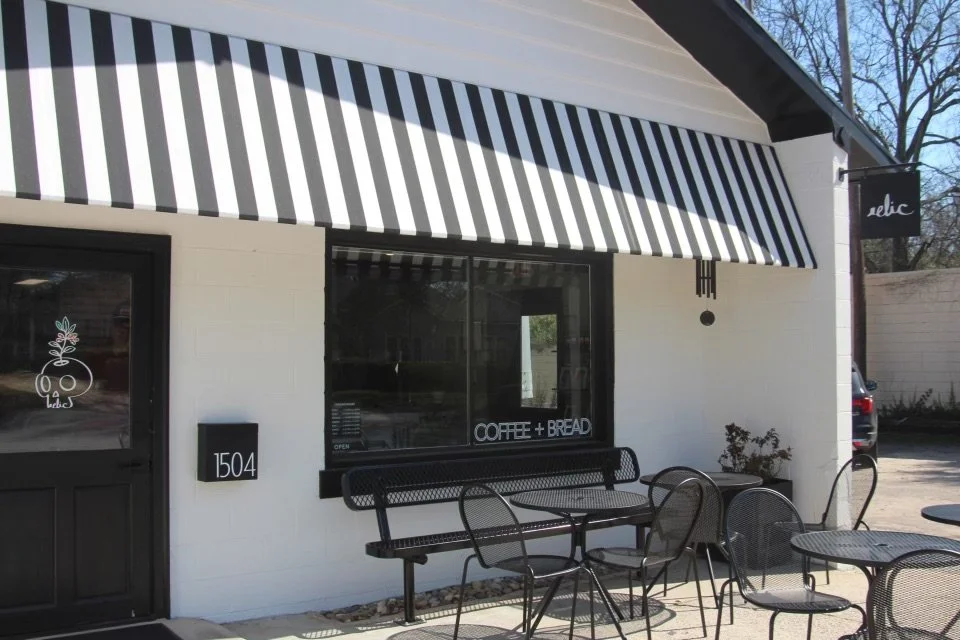The worst of Masters traffic
By CM Wahl | News editor
Heavy traffic during the Masters is expected by locals and visitors alike, but few people expect the traffic going on behind closed doors.
The tournament attracts throngs of golf enthusiasts to the CSRA every year, and with it comes an increase in profits and patronage for many local businesses. But much like other high-profile sporting events, it also presents an opportunity for those who seek financial gain from human trafficking.
According to Kimberly Walden, founder and CEO of the GLM2 Foundation, Augusta is number one for human trafficking, child exploitation and child pornography in Georgia. Walden stated these statistics come from civil authorities that consider the number of related arrests, calls to hotlines, and reporting from rescue organizations and recovery facilities.
“They’re making the connections online," said Walden. "Everything’s done online; bought and sold online. And then the handler delivers the ‘product’ for somebody to buy.”
Walden's organization provides safe dwelling places and long-term aftercare for women and their children affected by sex trafficking and domestic violence. She stated that news sources may highlight trafficking awareness during Masters week, but sex trafficking in Georgia is a growing and consistent problem, especially in Richmond County, and has been for a long time.
“Strip clubs, pornography, all of that," said Walden, "is still trafficking because that’s where traffickers groom their victims.”
Walden said that both males and females get trafficked, and both males and females are traffickers. She stated that since most customers, or "johns," prefer a different experience each time, pimps bring in a large "inventory" of victims for abusers to choose from.
One explanation Walden gave for the rise in sex trafficking numbers during the Masters is the influx of white American males, which she claimed was the number one buyer of sex on the planet according to recent statistics. This is what increases business for the sex trafficking industry, regardless of location.
"Whether it's a race in Daytona or a big convention down in Las Vegas," said Walden, "traffickers follow the money."
Walden described deplorable conditions endured by victims, who regularly suffer through despicable acts to avoid consequences from their "owners." They often end up addicted to drugs, trapped in a trauma bond and alienated from their loved ones. Some even lose their lives.
“The [abusers] can do whatever they want to because you are just a product. You’re not a human being. And if they kill you, they just pay a little extra.”
Victims of sex trafficking have tell-tale signs according to Walden. They do not usually make eye contact, cannot provide identification, and may appear to be dressed older than they are. Walden stated if these victims wish to escape their abuser, they must take the first step on their own.
“They have to be the ones to call," said Walden. "It’s no different than anything else. Like if you were a drug addict, somebody can’t call for you.”
The National Human Trafficking Hotline (888) 373-7888 provides aid and rescue for trafficking victims and their children. Once victims call, they can be placed in a short-term facility to obtain counseling, temporary shelter, vocational and skills training, and housing, medical, and legal assistance.
Walden said it is vital that survivors find long-term help after that because without a job and place to live, they may return to their abuser. Her organization, GLM2, which stands for "God Loves Me, Too," helps those exiting short-term facilities to rebuild their lives over the following two to five years.
Those interested in volunteering with GLM2 can email Walden at kimberly@glm2.life or call or text (762) 233-2371 for more information. However, Walden warned that the first requirement for working with participants is a criminal background check, followed by extensive specialized training. She explained that volunteers may mean well by offering a kind word or act of service, but they must first gain an understanding of how to act around victims to avoid potential triggers.
“These are people who have been through the most heinous crimes against humanity that no person should ever go through," said Walden. "And they don’t look like you, they don’t act like you, they don’t smell like you, they don’t talk like you, and they don’t think like you, because they are not you. And you’re trying to implement your point of view into their world and it does not work that way.”
Walden stated that even something as simple as picking out linens must be handled delicately. She said she takes survivors with her when shopping so they can open the package, smell it and feel the texture before purchasing anything that could potentially trigger PTSD or night terrors.
Anyone can become a victim of trafficking, but according to the Human Trafficking Search website, most come from positions of vulnerability. The U.S.-based global resource and database stated that people who are homeless, have run away, come from a low socio-economic background, are a minority or an immigrant, have been affected by a natural or political disaster, are in foster care, or have a history of sexual or partner abuse often become targets of traffickers.
"Traffickers use these vulnerabilities to their advantage and use a number of tactics to establish control over victims," stated the website. "Violence, isolation, threats, deception, manipulation, debt bondage, prospects of education, and romance are just a few methods used."
The Office to Monitor and Combat Trafficking in Persons, a division of the U.S. Department of Civilian Security, Democracy, and Human Rights, leads a global effort to combat human trafficking by prosecuting traffickers, protecting victims, and preventing human trafficking.
According to their published data, traffickers often recruit victims with false promises of well-paying jobs and have shifted recruitment and advertisement tactics to online forms like chats and websites. The Office has created the National Action Plan to Combat Human Trafficking, which integrates their core commitment to address the needs of underserved individuals, families and communities who are victimized through trafficking.
Freedom United, an organization with similar goals, refers to trafficking as “modern slavery" and includes in the definition "forced labor, forced marriage, debt bondage, bonded labor, trafficking for labor and sexual exploitation.” They seek to educate and empower the community at-large on modern slavery in hopes to eventually create systemic change.
Their site states, "We believe that a world free of modern slavery can only exist when everyone recognizes the contemporary forms of slavery and sets clear expectations that exploitation is not tolerable.”
Contact CM Wahl at cwahl@augusta.edu.





